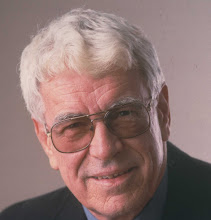October 26, 2008
What would happen if human beings suddenly evaporated, vanishing off the face of the earth in the blink of an eye?
That's the question posed by a fascinating, disturbing documentary film called Aftermath: Population Zero, created by Cream Productions of Toronto and recently broadcast on Global. The DVD is available from National Geographic, whose channel broadcast the show last March.
The show postulates that, on a pleasant June morning, people simply vanish instanteously, like a bubble bursting. Poof! Cars have no drivers, planes have no pilots, ships no crews, power plants no operators. All over the earth, vehicles crash, burn and sink. Coal-fired generating plants run out of coal, and within 85 minutes the only functioning power plants are nuclear.
Starving pets soon escape their owners' homes and forage for food. Within a week, big dogs devour all the small ones. Zoo animals pass through useless electric fences. Tigers and elephants roam the streets.
Water pumps fail. Sewage floods the streets. Dogs and tigers fan out into the country, dining on un-milked dead dairy cows. Beef cattle survive nicely. Mice invade the supermarkets, and their population explodes until the cats find them. Raccoons, squirrels and skunks move into abandoned houses and nest in the furniture.
As winter approaches, the zoo animals move south. Billions of cockroaches die in the unheated buildings. As the years pass, house roofs fall in, and trees root in living rooms. The glass drops off the skyscrapers, and birds breed on the desks. Grass grows over the cracked roads. Repeated hurricanes wipe all the buildings off the east coast. Cars rust and vanish. Concrete fails, and buildings collapse. Ships become reefs.
As the centuries pass, fish stocks are replenished in the ocean, forests cover the cities, birds fly freely in the clear skies, wolves return to Europe. Dams fail, and the Colorado River again reaches the ocean, while the fields it once irrigated revert to desert. The Statue of Liberty and the Eiffel Tower fall. After 25,000 years – a geological eye-blink – the glaciers of a new Ice Age rumble down from the Arctic, grinding away all traces of human life, save for a few artifacts on the airless, eternal surface of the moon.
This has been a thought experiment, says the narrator, to see how the earth would do without us. Clearly, it would not miss us. But we cannot do without the earth.
Of all the startling images in this remarkable film, the ones that haunt me most are the nuclear power plants. Nuclear plants contain whole buildings full of spent fuel rods, which remain highly radioactive for centuries and are stored in swimming pools cooled by running water. This is nuclear garbage, and we have no idea what to do with it. We have dumped some in the oceans, and the nuclear industry has proposed various solutions, like dropping it into deep mines in stable rock formations, or fastening it into rockets and firing it into the sun. But most of it remains on-site.
The great irony is that we can't dispose of nuclear debris because nobody wants it nearby – and so millions live with it nearby, at the local power plant. It's safe enough until the water stops, as it does in Aftermath. Then the fuel turns the remaining water to steam. The storage buildings explode, creating a wave of nuclear disasters belching radioactive clouds and deadly rains.
The episode neatly shows exactly why nuclear power cannot be economic. Nuclear cost estimates never include the price of cleaning up the garbage, because nobody knows how to do that, or what it would cost. So the lifetime cost of nuclear power can never be known. What we do know is that nuclear power is not cheap because it's not safe – and we have no way to make it so.
In Aftermath, plants and animals die of radiation, but ultimately the earth shrugs this off, too. Within a year or two, the radioactivity is dissipated, and life starts to re-colonize the hot zones. Which reminds us – or ought to – that environmentalism is not about saving the planet. The earth doesn't need us. Environmentalism about saving our own habitat. It's about saving ourselves.
-- 30 --
Monday, October 27, 2008
A World Without People
Subscribe to:
Post Comments (Atom)

1 comment:
Hi,
Came across your blog through one of my alerts.
This documentary sounds really interesting, I think this nuclear plant waste stuff needs to be hyped a little probably by the media so some action gets taken.
Post a Comment